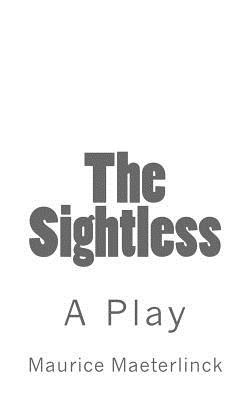
- Išsiųsime per 10–14 d.d.
- Leidėjas: CreateSpace Independent Publishing Platform
- Metai: 2016
- Puslapiai: 58
- ISBN-10: 1532723407
- ISBN-13: 9781532723407
- Formatas: 12.7 x 20.3 x 0.3 cm, minkšti viršeliai
- Kalba: Anglų
- Extra -15 % nuolaida šiai knygai su kodu: ENG15
The Sightless (el. knyga) (skaityta knyga) | knygos.lt
Atsiliepimai
Aprašymas
For Maeterlinck, the blindness is symbolic of the human condition: The group of blind men and women have been led out from the institution in which they live on an outing by a priest, a man they seem to trust, but who has inexplicably left them helpless and fled. Maurice Maeterlinck (1862 -1949) was a Belgian playwright, poet, and essayist. He was a Fleming, but wrote in French. His plays form an important part of the Symbolist movement. He was awarded the Nobel Prize in Literature in 1911 "in appreciation of his many-sided literary activities, and especially of his dramatic works, which are distinguished by a wealth of imagination and by a poetic fancy, which reveals, sometimes in the guise of a fairy tale, a deep inspiration, while in a mysterious way they appeal to the readers' own feelings and stimulate their imaginations".
EXTRA 15 % nuolaida su kodu: ENG15
Akcija baigiasi už 1d.14:00:23
Nuolaidos kodas galioja perkant nuo 10 €. Nuolaidos nesumuojamos.

- Leidėjas: CreateSpace Independent Publishing Platform
- Metai: 2016
- Puslapiai: 58
- ISBN-10: 1532723407
- ISBN-13: 9781532723407
- Formatas: 12.7 x 20.3 x 0.3 cm, minkšti viršeliai
- Kalba: Anglų Anglų
For Maeterlinck, the blindness is symbolic of the human condition: The group of blind men and women have been led out from the institution in which they live on an outing by a priest, a man they seem to trust, but who has inexplicably left them helpless and fled. Maurice Maeterlinck (1862 -1949) was a Belgian playwright, poet, and essayist. He was a Fleming, but wrote in French. His plays form an important part of the Symbolist movement. He was awarded the Nobel Prize in Literature in 1911 "in appreciation of his many-sided literary activities, and especially of his dramatic works, which are distinguished by a wealth of imagination and by a poetic fancy, which reveals, sometimes in the guise of a fairy tale, a deep inspiration, while in a mysterious way they appeal to the readers' own feelings and stimulate their imaginations".




Atsiliepimai